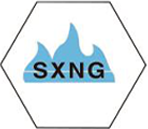
Aug . 17, 2024 16:46
Back to list
Advancements in Natural Gas Filtration Techniques for Enhanced Efficiency and Safety
Natural Gas Filtration Ensuring Clean and Efficient Energy
Natural gas has emerged as one of the most significant sources of energy in the world, providing a cleaner alternative to coal and oil. With its increasing usage in electricity generation, heating, and as a fuel for vehicles, ensuring the purity and quality of natural gas has become paramount. This is where natural gas filtration comes into play. Filtration processes help eliminate impurities that can affect not only the performance of the gas but also the health of engines and other equipment that rely on natural gas.
The Importance of Filtration
Natural gas, in its raw form, often contains several contaminants, including water vapor, carbon dioxide, hydrogen sulfide, and particulate matter. These impurities can cause a variety of problems. For example, water vapor can lead to corrosion in pipelines and engines, while hydrogen sulfide is toxic and can be harmful to both humans and the environment. Particulate matter can clog filters and damage sensitive equipment. Therefore, effective filtration is crucial to ensure the safe delivery of natural gas.
Types of Filtration Systems
There are various filtration techniques employed in the natural gas industry, each designed to target specific contaminants
1. Coalescing Filters These filters are primarily used to remove water and liquid hydrocarbons from natural gas. They operate on the principle of coalescence, whereby smaller water droplets combine to form larger ones that can then be removed.
2. Activated Carbon Filters Effective in absorbing contaminants such as hydrogen sulfide and organic vapors, activated carbon filters are vital in ensuring the gas's safety and compliance with environmental regulations.
3. Membrane Separation This advanced technology uses selective barriers to separate undesirable gases from natural gas. Membrane systems can effectively reduce carbon dioxide and other unwanted compounds, enhancing the gas's overall quality.
natural gas filtration

4. Solid Particle Filters These are used to remove solid impurities, such as dust and rust, from the gas stream. By preventing these particles from entering equipment, solid particle filters play a critical role in maintaining operational efficiency.
Benefits of Effective Filtration
Implementing robust filtration systems in natural gas processing offers numerous benefits. Firstly, it enhances the reliability and efficiency of gas-fired equipment, reducing maintenance costs and downtime. Clean gas also leads to better combustion, resulting in higher energy outputs and lower emissions of greenhouse gases. Additionally, by ensuring compliance with stringent environmental regulations, companies can avoid hefty fines and contribute to a more sustainable energy future.
Future Trends in Natural Gas Filtration
As the energy landscape continues to evolve, so does the technology behind natural gas filtration. Innovations such as nanomaterials and advanced filtration media are being explored to improve efficiency and effectiveness further. The integration of smart technologies, including IoT sensors, can also facilitate real-time monitoring of gas quality, enabling quicker responses to any contamination issues.
Moreover, as the world shifts towards more sustainable energy practices, the role of natural gas is likely to change, making its filtration even more critical. With the potential rise of biogas and other renewable gases, the filtration processes may need to adapt to handle these new forms of energy effectively.
Conclusion
Natural gas filtration is a vital component of the natural gas supply chain, ensuring the delivery of clean, safe, and efficient energy. With various filtration technologies available, the industry is well-equipped to tackle common contaminants while paving the way for future innovations. As natural gas continues to play a pivotal role in the global energy mix, investing in effective filtration solutions will be essential for both operational success and environmental sustainability.
Latest news
-
Safety Valve Spring-Loaded Design Overpressure ProtectionNewsJul.25,2025
-
Precision Voltage Regulator AC5 Accuracy Grade PerformanceNewsJul.25,2025
-
Natural Gas Pressure Regulating Skid Industrial Pipeline ApplicationsNewsJul.25,2025
-
Natural Gas Filter Stainless Steel Mesh Element DesignNewsJul.25,2025
-
Gas Pressure Regulator Valve Direct-Acting Spring-Loaded DesignNewsJul.25,2025
-
Decompression Equipment Multi-Stage Heat Exchange System DesignNewsJul.25,2025

